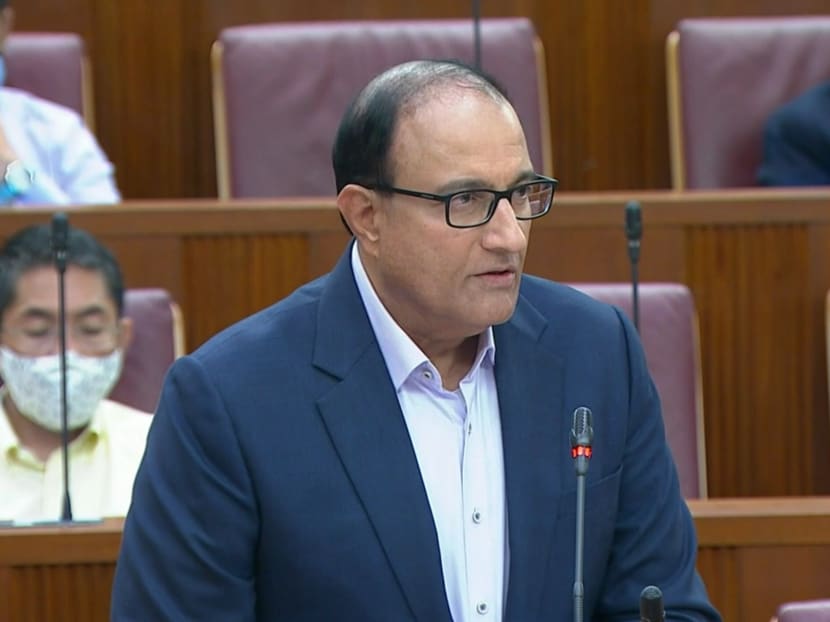SPH’s news business model untenable amid industry shifts; Govt must act given the stakes: Iswaran
SINGAPORE — With newspapers around the world coming under siege and suffering from falling advertising revenues, Singapore Press Holdings’ (SPH) news business model is “no longer viable”, Mr S Iswaran said on Monday (May 10).
- The global news media industry is under siege and there is no universal solution, said Mr S Iswaran
- In his ministerial statement on Monday, he explained how overseas news outlets have sought public, private or philanthropic funding
- SPH had held out longer than most, but there is a serious risk that its capabilities will be hollowed out, he said
SINGAPORE — With newspapers around the world coming under siege and suffering from falling advertising revenues, Singapore Press Holdings’ (SPH) news business model is “no longer viable”, Mr S Iswaran said on Monday (May 10).
In a ministerial statement delivered in Parliament, the Minister for Communications and Information noted that news organisations around the world are running deficits, shrinking or closing down, as revenues from print advertisements have fallen sharply in the face of competition from online news and digital platforms, which capture the lion’s share of digital ad revenue.
“The global news media industry is under severe structural pressure and there is no universal solution. A few have succeeded; some are struggling; many have failed,” Mr Iswaran said.
“At this critical juncture, SPH Media must similarly chart its own course to revise and, if necessary, reinvent its business model for the digital age.”
Mrs Josephine Teo will be taking over from Mr Iswaran to helm the Ministry of Communications and Information on May 15.
His statement came after SPH’s proposal last Thursday that it would be hiving off its media business into a not-for-profit entity.
Expected to be completed by October pending shareholders’ approval, the news media arm will eventually be a new company that is limited by guarantee, which would allow it to receive funding from private and public sources.
In his speech, Mr Iswaran pointed to how overseas news organisations have sought to stay afloat by different means given the global industry trends, and they are funded from various sources, be it public, private, philanthropic or others.
“Many have resorted to cost-cutting to survive.... Even digital news sites, which have ridden the wave of internet media, have not been spared,” he said.
The Australian group News Corp, which is owned by media magnate Rupert Murdoch and is one of the largest news organisations in the world, recorded a US$1.1 billion loss last year and is in the process of a consolidation exercise. Likewise, popular online news outlet Buzzfeed has never made a profit, he noted.
Others have received funding from non-profit organisations or received support from wealthy financial backers or funds.
Mr Iswaran cited Hong Kong’s South China Morning Post as an example, noting that it was owned by Mr Murdoch until 1993, then acquired by Malaysian real estate tycoon Robert Kuok, who owned it until 2016, when it was bought by Chinese businessman Jack Ma’s Alibaba Group.
But even the most profitable newspapers — which are rare — are under pressure, Mr Iswaran said, highlighting the manpower cuts at the Wall Street Journal and the takeover of Britain’s Financial Times by Japanese media group Nikkei.
PUBLIC FUNDING OF SPH MEDIA
At the same time, governments are recognising that news media is a public good that merits direct public funding, Mr Iswaran said.
In France, its government has financially supported prominent papers such as Le Monde and Le Figaro for over 50 years, with annual subsidies sometimes exceeding a billion euros. Scandinavian governments have also supported their newspapers through press subsidies, Mr Iswaran noted.
Last week, the Ministry of Communications and Information said in a statement on the same day of SPH’s announcement that the Government is willing to support the restructuring and help fund the non-profit news entity.
Explaining the rationale in his ministerial statement, Mr Iswaran said that SPH has held its newspaper circulation steady and grown its digital circulation more than 20 per cent year-on-year.
The company has also invested significantly — S$50 million a year for the past five years — on digital capabilities and growing readership.
Mr Iswaran also mentioned the 2021 Edelman trust barometer and other polls that show that Singaporeans still have high trust in the local media, saying that Singaporeans look to local newspapers and television channels as their trusted sources of critical information.
“In short, these are not news platforms that are declining in quality or readership. On the contrary, like Mediacorp in broadcasting, SPH papers continue to be trusted and valued sources of news that are well-read.
“Their challenge today stems from an inability to monetise their gains in attracting and retaining readers on digital platforms,” Mr Iswaran said.
Although SPH has held out “longer than most”, it is not spared from the trends that affect global news organisations, and there is also limited scope to its strategy of growing digital subscriptions given Singapore’s small domestic market, he added.
“Under the current structure, there is a serious risk that SPH’s media capabilities will be hollowed out. Without sustained investment in capacity-building and a digital pivot, its quality and circulation will fall."
This in turn will worsen financials and cause further disinvestment, Mr Iswaran said, noting that the pressure will be immediately felt by SPH’s vernacular news outlets such as Berita Harian and Tamil Murasu, potentially causing a “profound detrimental impact” on Singapore’s multi-racial society.
Without a responsible and high-quality news media here, the quality of public debate and discourse will be compromised and Singapore’s society will become less cohesive, he said.
“Given what is at stake, the Government must take a long-term view and adopt measures to secure the sustainability of our local media.”












